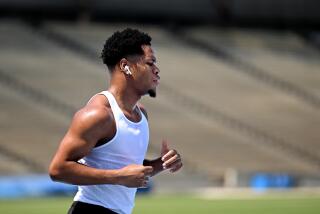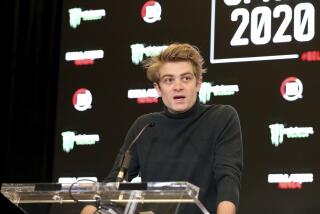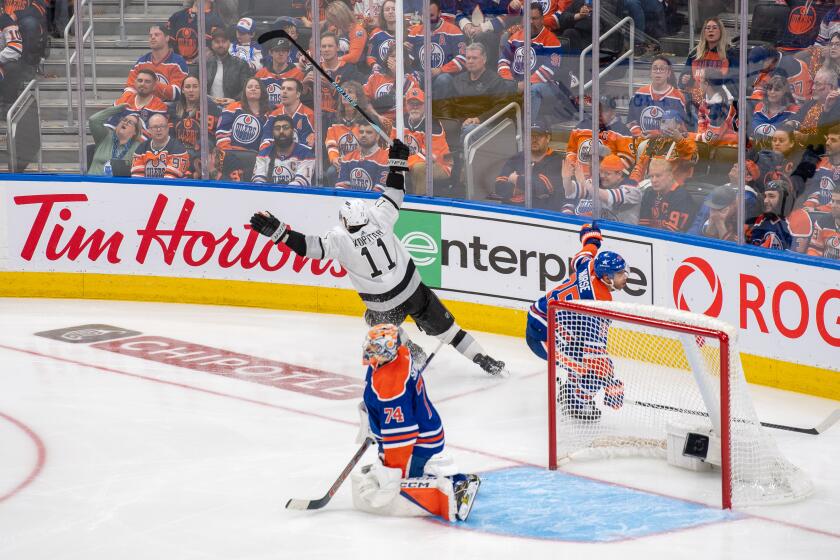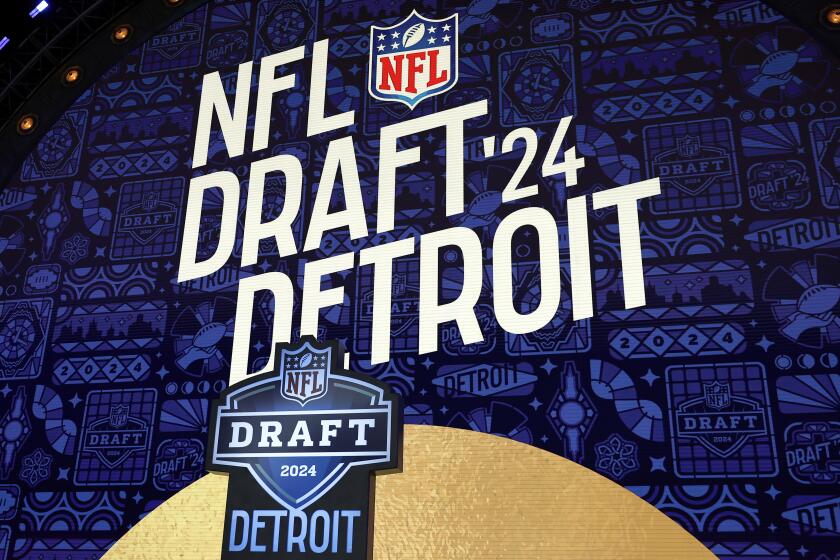Boxing champion Manny Pacquiao is virtually at home in Macao
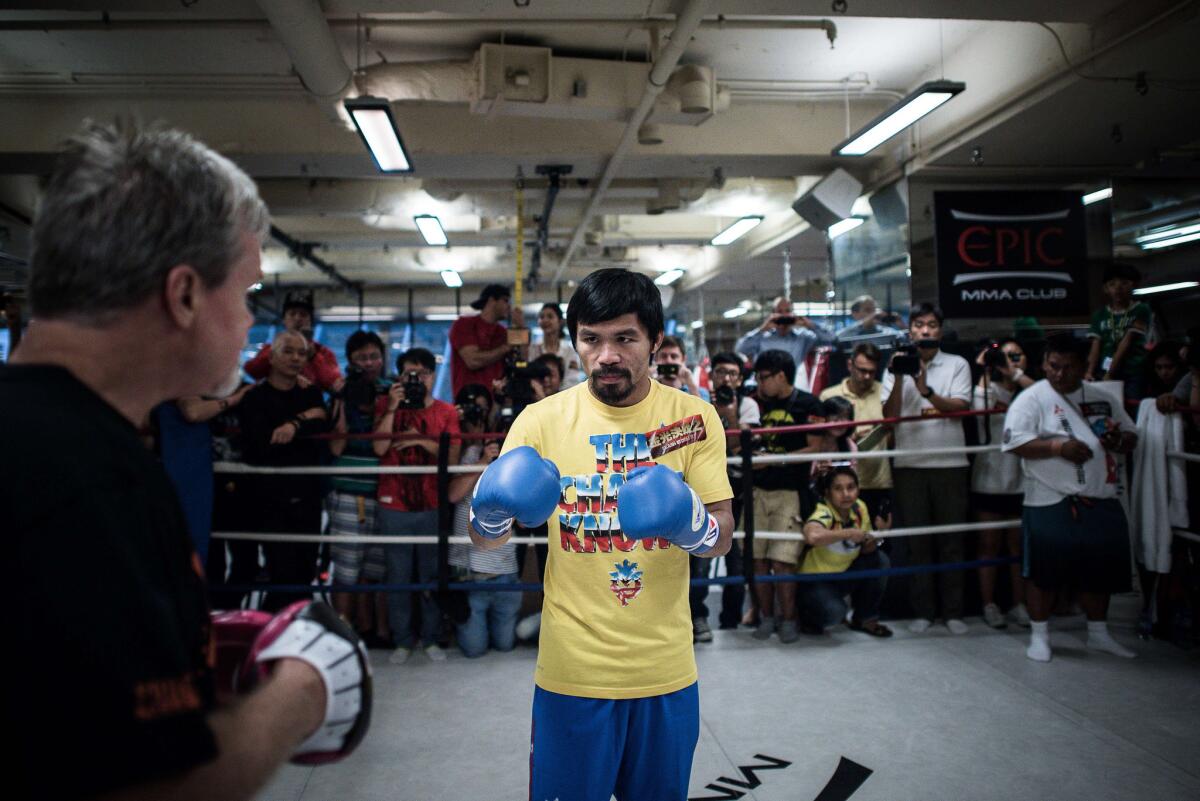
Manny Pacquiao’s popularity in the ring outgrew his native Philippines, but China’s embrace of capitalism has given him another chance at fighting closer to home.
Pacquiao’s last bout in his homeland was in 2006, a unanimous-decision victory in a super-featherweight world title defense at Manila’s aging Araneta Coliseum, site of the Muhammad Ali-Joe Frazier “Thrilla in Manila” in 1975.
Las Vegas, the world’s fight capital, then beckoned Pacquiao and the city has served as the locale of 12 of his last 16 bouts. Two fights were held at AT&T Stadium, home of the NFL’s Dallas Cowboys.
Last year, Pacquiao was lured to fight in China’s gambling mecca of Macao, a resort constructed from reclaimed land across the water from Hong Kong.
“The handshake deal we made with [Pacquiao promoter] Bob Arum was to get three of his last five fights here,” Edward Tracy, president and chief executive of Sands China, said Tuesday.
On Saturday night U.S. time, World Boxing Organization welterweight champion Pacquiao (56-5-2, 38 knockouts) returns to the Venetian Macao’s 13,000-seat Cotai Arena when he fights unbeaten junior-welterweight Chris Algieri (20-0, 8 KOs) on HBO pay per view.
Pro boxing in China remains a work in progress, in part because of a shortage of standouts. In fact, some spectators left a recent Macao main event because neither fighter was Chinese.
But there seems to be no better person to build the sport in China than the best fighter from Asia.
“Two-hundred million people [possibly] watching the fight on [free Chinese] TV is the first clue,” Tracy said. “We’ve done a fair amount of research on the market, [Chinese] are aware of worldwide athletes [and] our [gamblers] love coming to our events.”
Macao is generating gambling profits far beyond Las Vegas’ sports books, and the influx of cash allows the Venetian to pay more for Pacquiao’s site fee than he can get in Nevada.
Pacquiao is receiving a $23-million guarantee for the Algieri bout because the site fee is nearly three times more than what he could secure in Las Vegas, Arum said. Pacquiao also avoids paying U.S. taxes on his purse.
And while U.S. pay-per-view sales Saturday might be less than a typical Pacquiao fight because of the distant locale, Arum said Pacquiao should pocket an additional $7 million in pay-per-view profit.
The Venetian is also trying to expand interest in boxing by promoting two-time Chinese Olympic champion Zou Shiming, who will fight on the Saturday card and is being pointed to a possible February world title fight in Macao.
“I saw comments in an article recently that said the Venetian boxing is about Zou Shiming,” Pacquiao advisor Michael Koncz said. “I don’t believe that. I believe the rise of boxing popularity in China is due to Manny Pacquiao. Without Manny’s star power, it’d take them longer to get where they want.”
Pacquiao drew a swarm of fans on a recent publicity stop at Statue Square in Hong Kong.
“If he goes to a place near Filipinos, it’s a given he’s going to get mobbed,” Manila Bulletin sports reporter Nick Giongco said. “He’s so popular, especially on this side of the world ... he’s transcendent.”
Pacquiao said he prefers fighting in Macao because it affords him a training base near his home in the Philippines, where he’s a congressman, and because he can bring along supporters from his country without getting visas, as they must do for U.S. fights.
Macao is a 90-minute flight from Manila. And on Monday night, 300 of Pacquiao’s friends accompanied him to Macao.
“It’s so nice to be back here to fight again, nice because a lot of friends can watch the fight easily,” Pacquiao said.
He said the biggest difference between his bouts in the U.S. and those in China “is that 70 to 80% [of fans] are Filipino.”
“Look at the casino ... it’s crowded, every hotel room is sold out,” Koncz said. “I’ve asked executives why ... it’s attributed to the boxing.”
More to Read
Get our high school sports newsletter
Prep Rally is devoted to the SoCal high school sports experience, bringing you scores, stories and a behind-the-scenes look at what makes prep sports so popular.
You may occasionally receive promotional content from the Los Angeles Times.
